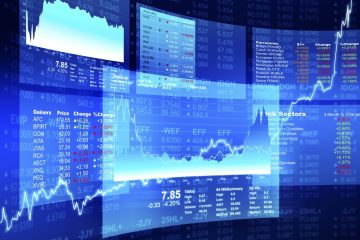How Similarly do Gamblers and Stock Traders Think?

“Stock market investing is no different than gambling at a sportsbook or casino!”
Many investors eventually hear this statement as stock market aficionados as they’re sometimes equated with gamblers. Although at first this seems shocking, both pursuits have SOME similarities. Although trading on Wall Street and casino gaming vary clearly, they have more in common than many would have you believe. Oddly enough, these parallels might not be what you would have predicted.
Investing vs. Gambling: Know the difference
Though they differ, gambling and investing have several traits that blur the borders. Fundamentally, both include risk as well as possible gain. Based on odds, gamblers lay bets expecting to win large. Buying equities, investors hope their value will rise. Both call on some degree of emotional control and risk tolerance.
Still, the secret to tackling top operators presented by sites like Gambling.com is strategy. Usually, it involves research, patience, and long-term planning, as does investing in the stock market. It also depends on assessing business success and consumer trends. Conversely, gambling—especially in games like poker or blackjack—can be more about chance than anything else, even if on the surface, some skill is still involved.
Still, both can cause comparable emotional reactions—excitement, expectation, and even disappointment. Problem gambling and impulsive investment practices might cross at this emotional roller coaster. Whether one is making an investment or betting, understanding these parallels can help people control their behaviour.
Gambling and Stock Markets: Do they correlate?
There exists a link between stock markets and gambling, particularly evident in phenomena such as lottery stocks. Lottery stocks are those that, although possessing minimal intrinsic worth, are actively traded due to the remote possibility of substantial returns. Similar to purchasing a lottery ticket, investors in these stocks anticipate substantial returns despite the elevated chance of loss.
This conduct illustrates the global influence of gambling on the stock market. Investors attracted by the prospect of rapid wealth sometimes approach these investments with a gambler’s mentality. This may result in exaggerated values and market instability, akin to the economic fluctuations caused by lotteries and other gambling activities.
The psychological characteristics that propel individuals towards gambling—such as thrill-seeking, the aspiration for rapid gains, and the overestimation of probabilities—similarly affect their behaviours in the stock market. By recognising this, investors may make better-informed decisions and circumvent the hazards associated with perceiving the stock market as a casino.
Comparative Analysis of Day Trading and Problematic Gambling
One clear, and worrisome comparison that is undeniable in the world of gambling and trading is compulsive staking.
Research indicates that if not properly regulated, day trading may engender behaviours as strong and destructive as those associated with gambling. Day trading induces a dopamine surge in participants, compelling them to return repeatedly despite incurring more losses than profits. Before realising it, the day trader may encounter financial difficulties and, therefore, feel sadness and self-loathing. This is somewhat analogous to gambling behaviours that become excessive.
Let us examine the similarities between day trading and compulsive gambling more closely:
Debt Liability
Due to the precarious nature of day trading, which is similar to gambling, several day traders often incur substantial debt. A significant connection between online trading and gambling is the failure to establish and adhere to restrictions. There exists a disjunction between allocating intangible financial resources and incurring monetary liabilities. Day traders and problem gamblers sometimes remain oblivious to their actual financial losses until they are unable to settle their bills or purchase groceries. Both problem gamblers and day traders have financial difficulties that impact themselves and their families.
Psychological Health Issues
As individuals get increasingly preoccupied with day trading, they may want to conceal their actions due to feelings of guilt or shame, resulting in heightened anxiety. Experiencing financial hardship may lead to depression. This cycle of pursuing a fleeting exhilaration, followed by an inability to cease despite feelings of shame or remorse, mirrors the behaviour exhibited by problem gamblers. It is a challenging cycle to disrupt; however, anybody may get relief with appropriate assistance.
Behaviour Patterns
Individuals attracted to day trading display traits similar to those observed in compulsive gamblers. Both groups are thrill-seekers and risk-takers. They also exhibit sentiments of overconfidence, a delusion of control, and an inclination towards pursuits characterised by little participation costs and substantial prospective gains.
The similar qualities have led several day traders to experience issues with gambling. Participation in stock exchanges or gambling activities triggers the release of dopamine in the brain, enhancing sensations of joy and excitement. Despite experiencing more losses than victories (or profits), they will persistently pursue this exhilarating emotion. This initiates a pattern that is difficult to escape, even when their financial circumstances necessitate cessation. What began as a pursuit of a little excitement has evolved into an obsession.
Stock Market vs. Sports Betting
Both sports betting and the stock market are influenced by what academics refer to as “human irrationality.” Individuals frequently allow their emotions to impact their selections while wagering on sports. They may wager on their preferred team instead of the one with the most favourable odds. Likewise, stock investors may buy or sell driven by speculation rather than empirical evidence.
Comprehending the influence of human behaviour on probabilities and stock valuations may be enlightening. In sports wagering, chances fluctuate as individuals place bets, mirroring collective behaviour and mood. This resembles the stock market, where prices vary according to investor behaviour and market mood.
By analysing these trends, both bettors and investors can enhance their ability to identify when irrational behaviour influences fluctuations. This may result in more rigorous strategies, whether wagering or purchasing a stock. However, it is also influenced by very illogical behaviour. Excessively wagering on a stock with uncertain returns might result in undesirable behaviours and habits.
A Complete Overview of Gambling vs. Stock Trading
- Gambling is the act of staking money on an event with an unpredictable and perhaps random result in hopes of obtaining a reward.
- Whether you are trading or investing, it is vital to possess a definitive plan to guide your actions. Opening a position without knowledge of potential profitability or the circumstances for its closure is gambling.
- In contrast to gambling, trading and investing are not wholly arbitrary since the use of technical and fundamental analysis, together with established tactics and strategies, provides traders with a competitive advantage. Investor behaviour influences asset valuation. For instance, if there is excessive demand for gold, the price will increase.
- Financial markets may exhibit volatility due to investor behaviour. If the Reserve Bank of the USA increases interest rates, there will be an immediate spike in demand for US dollars. Although the news may appear unexpected, the underlying rationale for the price movement is evident and sensible.
- Engaging in trading shares, derivatives, or investing in a firm without performing any technical or fundamental research results in a wholly arbitrary outcome; in essence, this is gambling. If you just read on a Reddit group that individuals are purchasing shares in a tech firm and are eager to invest, that constitutes gambling.
- Trading psychology is a well-examined domain within behavioural finance. Trading and investing require discipline, and traders must confront several prejudices to achieve good trading.
- The distinctions between trading and gambling have become increasingly ambiguous with products such as binary options and spread betting.
- Numerous gambling products, especially those conducted online and offshore, lack transparency. Conversely, trading platforms companies offer are usually licensed and subject to consistent regulatory oversight. They must adhere to optimal execution standards and stringent reporting requirements.










